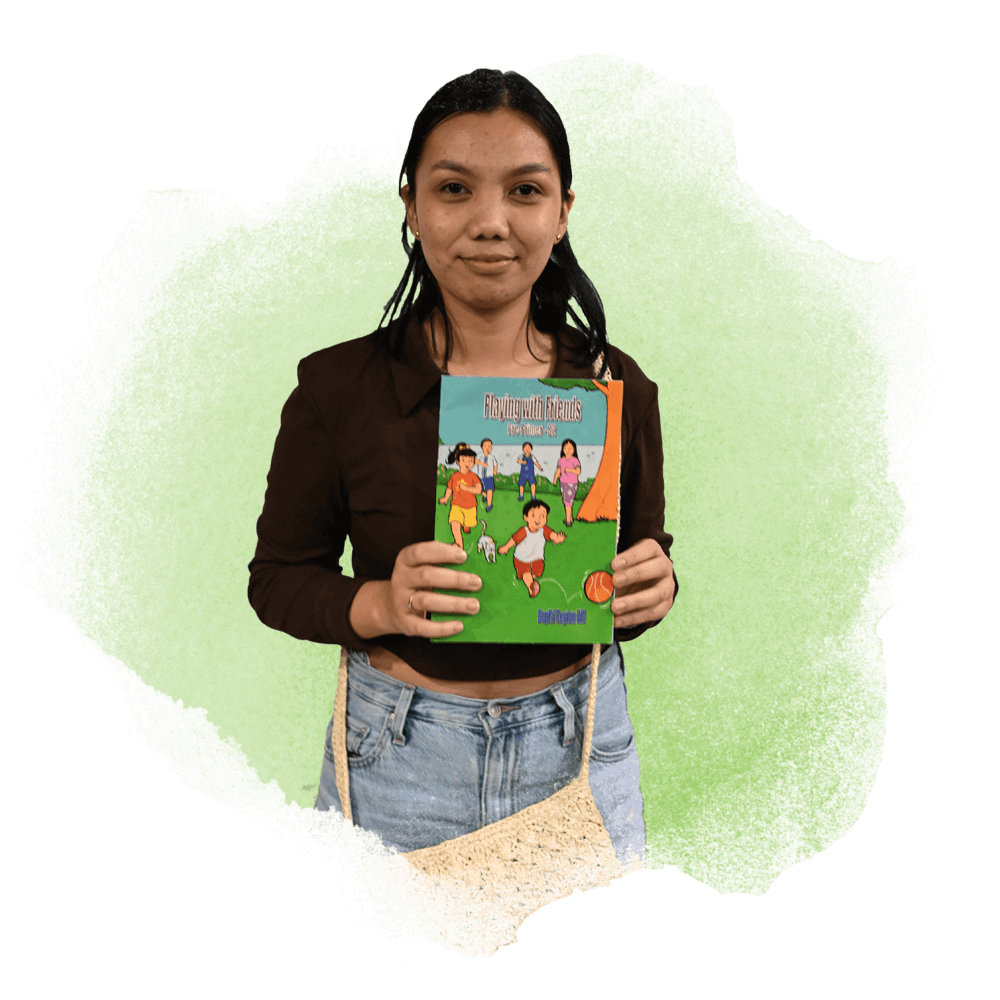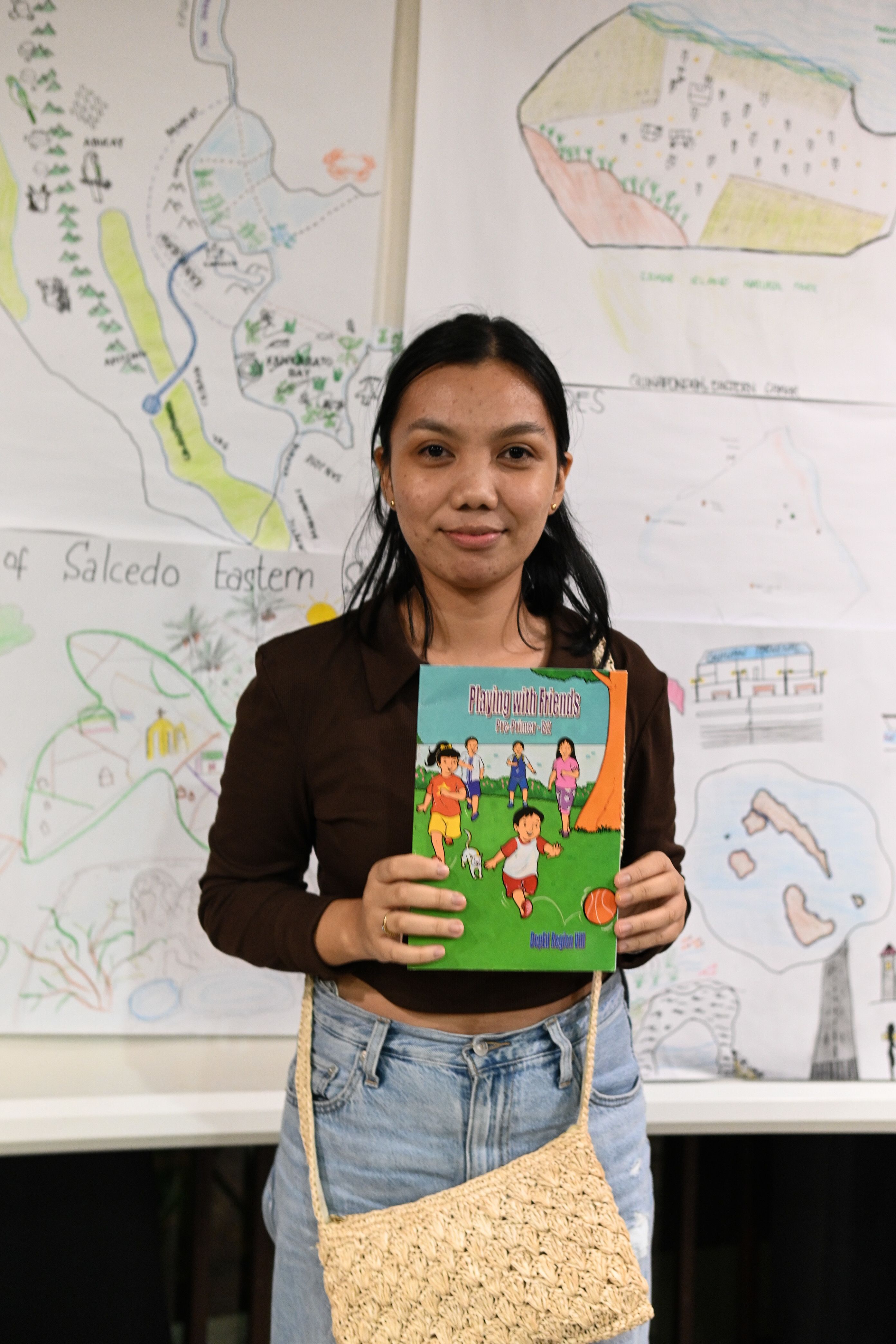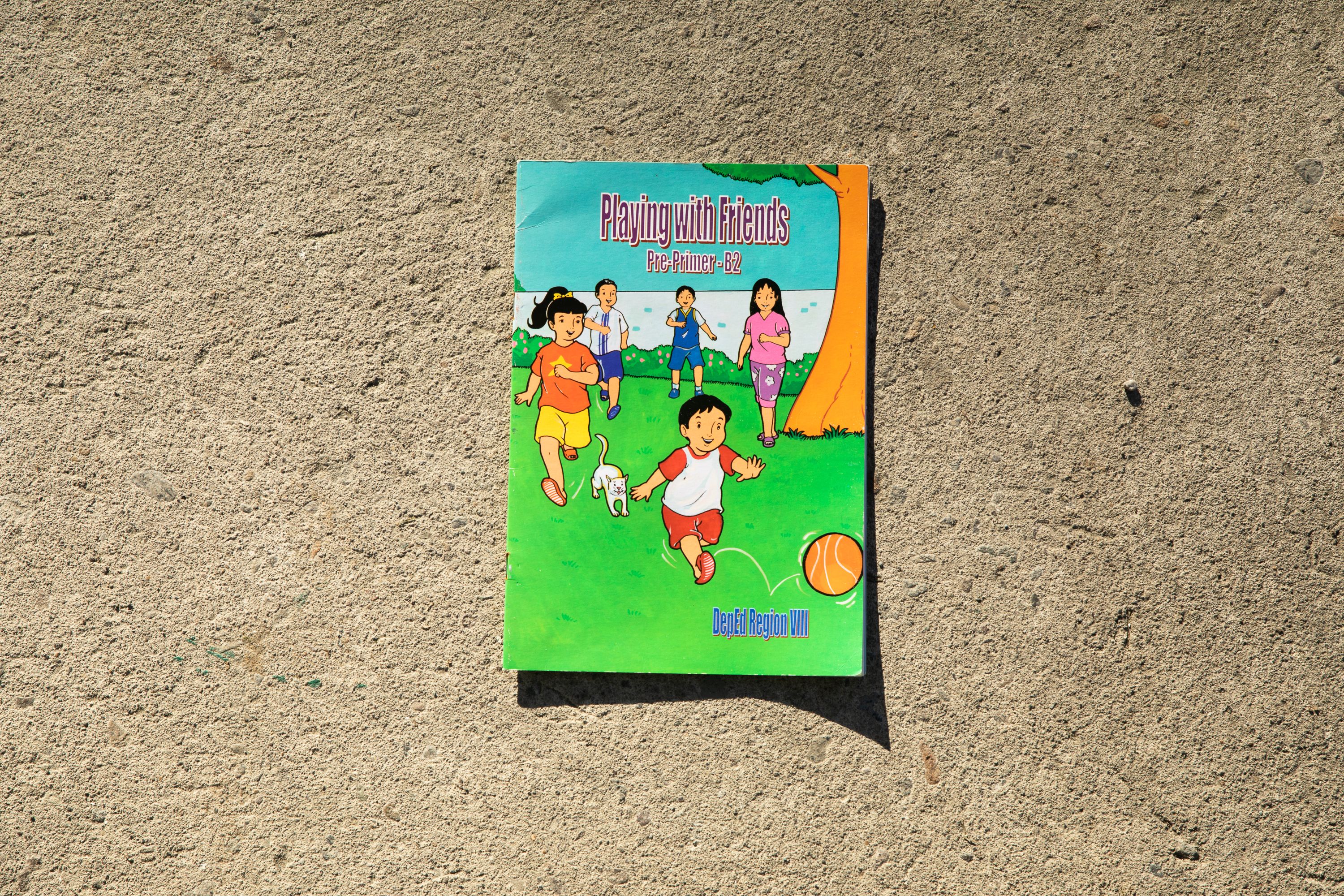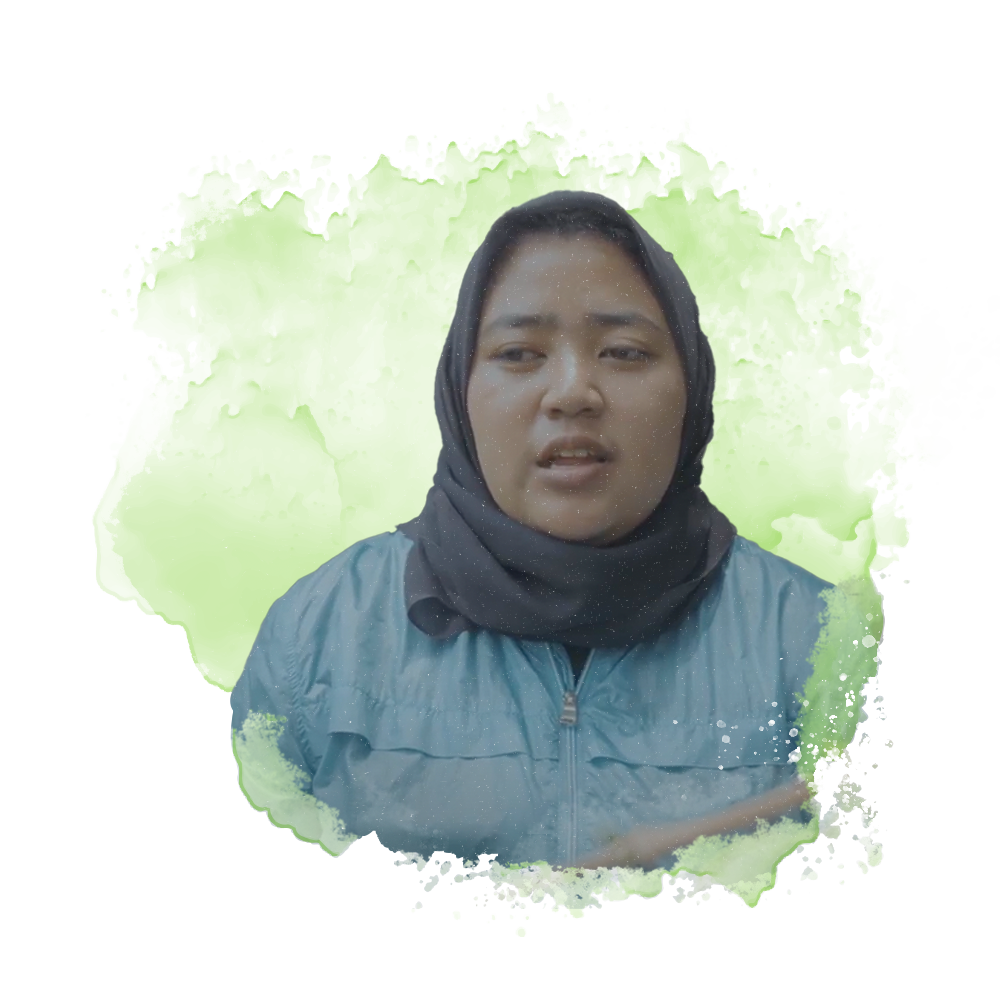KINDERGARTEN BOOK | PHILIPPINES
QUEENEE DELA CRUZ
PHILIPPINES
Queenee witnesses a crisis as climate change affects education. In some schools, sweltering heat disrupts learning and suspension of classes increases due to extreme weather events, impacting the learning environment as well as the students’ quality of education.

Queenee, a dedicated teacher, delved into a research project exploring the influence of weather changes on students' second language acquisition. The findings revealed detrimental effects.
Climate change, she realised, casts a shadow on a child's education, particularly in less privileged schools lacking proper facilities. In these learning environments, elevated temperatures hinder the already challenging educational journey. The impact extends beyond discomfort—extreme weather events result in frequent suspensions, disrupting the learning process with unpredictable shifts from scorching heat to torrential rain and unexpected brownouts.
Confronted daily with the reality her students face, Queenee harbours a deep sadness, witnessing firsthand the severe toll climate change exacts on the education sector and the promising futures of these young learners.
OBJECT OF MEMORY
This kindergarten book serves as a resource for the remedial classes of Queenee’s Grade 11 students who are still grappling with reading skills, a stark reality even in high school. The far-reaching impact of climate change compounds the educational challenges these students face.
WATCH QUEENEE'S VIDEO
Hailing from coastal areas, some of her students struggle to attend school daily. Their families' livelihoods, dependent on fishing, directly influence their ability to go to school. When their parents fail to catch fish, they have no allowance, and they are unable to attend classes.
By 7 a.m., the stifling heat in the classrooms hampers concentration, particularly for slower learners who battle both discomfort and distraction. Inadequate electric fans and ventilation exacerbate the situation. Extreme weather events, increasingly prevalent, force teachers to suspend classes. The intersection of educational barriers and climate-related adversities underscores the urgency of addressing these interconnected challenges for the well-being of students.
MAKE POLLUTERS PAY.
SIGN THE PETITION.








